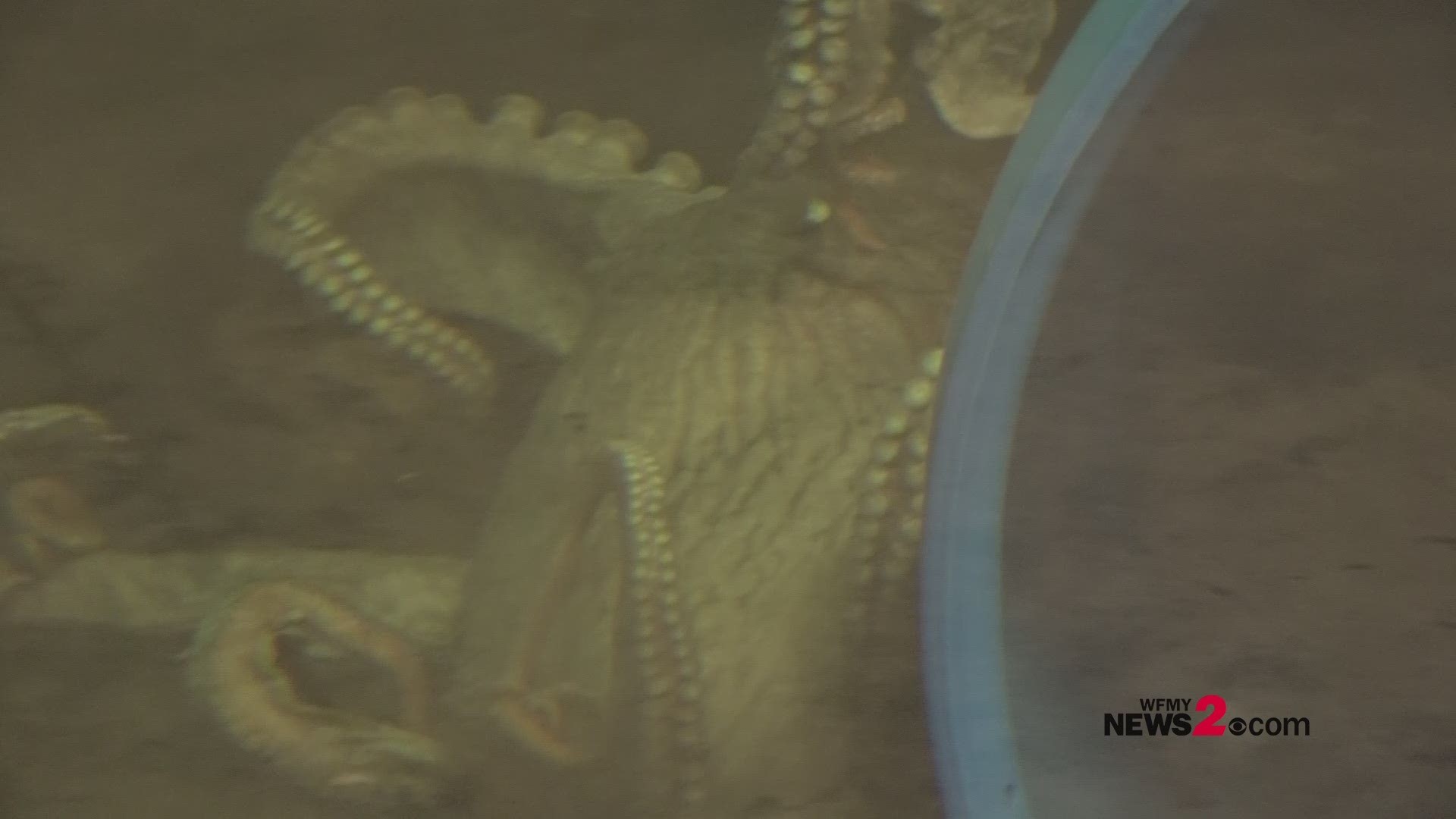GREENSBORO, N.C. — "Every new beginning comes from some other beginning's end," are lyrics from the popular rock song Closing Time by Semisonic.
The lyrics are quite appropriate to recent events at the Greensboro Science Center.
Last week, the Greensboro Science Center Aquatics team moved their octopus off exhibit after 18 months in the space.
The creature’s move comes because of her entrance into the final stage of her life, a period called senescence.
“For octopuses it means a few different things – it means loss of vision, a loss of appetite, it means uncoordinated movements and occasional lesions that develop on the body, shared Robert Donovan, an aquarist at the Science Center.
An average lifespan for a Giant Pacific Octopus is two to three years, not very long for us humans, but in an invertebrate’s world, it’s quite plentiful.
“It seems short for us, but compared to the common octopus, the reef octopus that only live about a year or two, it’s really quite long,” Donovan added.
Experts believe an adult octopus can have the same intelligence level of a 3 to 5-year-old child with problem solving capabilities, facial recognition and play-time.
That probably doesn’t make it any easier for a human to understand the rather dark life cycle of these sea creatures, but Donovan explains their story can be compared to that of “Charlotte’s Web.”
“She has a purpose, she’s going to eat, she’s going to grow, she’s going to mate, she’s going to lay eggs,” Donovan says. “And she’s going to do the best she can to care for them until they hatch or until she passes away.”
After analyzing the former octopus resident’s eggs, an ultrasound revealed they were unfortunately not fertile.
Like other animals, octopuses have the ability to still lay eggs without mating, but the lack of fertilization causes them to just be empty vessels.
In a Facebook post, the Science Center shared the Aquatics team assured the octopus would not suffer negative impacts associated with being separated from the eggs.
Looking at the bright side, Donovan shared that this specific octopus had a much longer life than its three predecessors, surviving three times the average of the rest.
While little octopuses weren’t meant to be for the former Science Center octopus, there’s still a chance for some in the future with the new resident.
As it reaches senescence, the giant pacific octopus lays up to 50,000 eggs with a .1% to 1% survival rate.
“If they would lay the maximum number, that’s 50 to 500 giant pacific octopus that make it to adulthood.
“There’s always a chance that this one could lay fertile eggs and we’ll just have to wait and see how that goes,” Donovan said.
Donovan shared that since her arrival in November, the new octopus has already showed her personality and described her as sneaky and curious.
She enjoys watching her visitors from afar throughout the day.
You can visit the octopus and other animals at the Greensboro Science Center weekdays from 9 a.m. to 5 p.m. and on weekends from 10 p.m. to 4 p.m.



